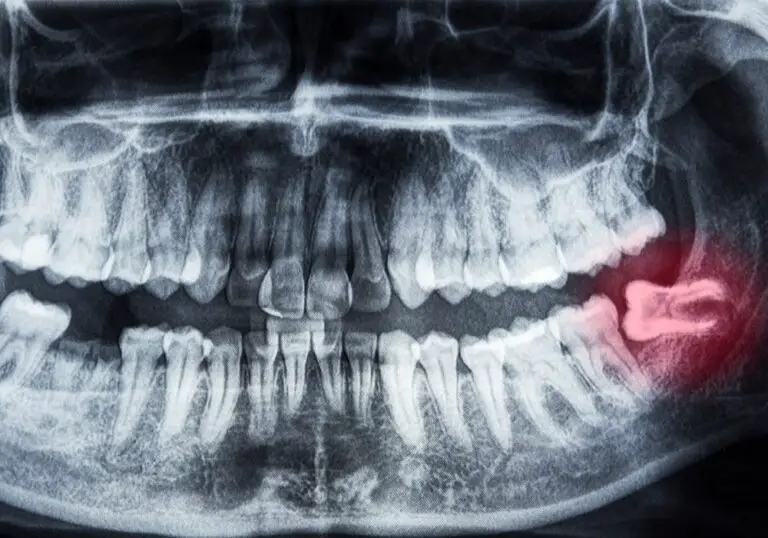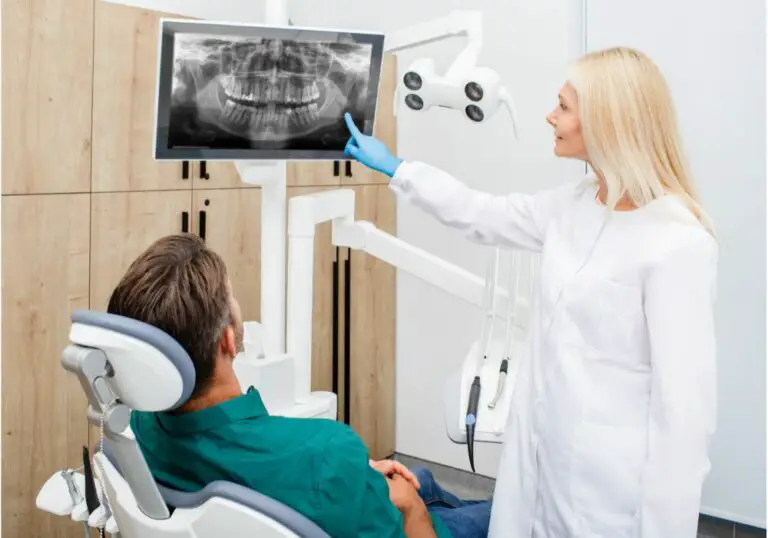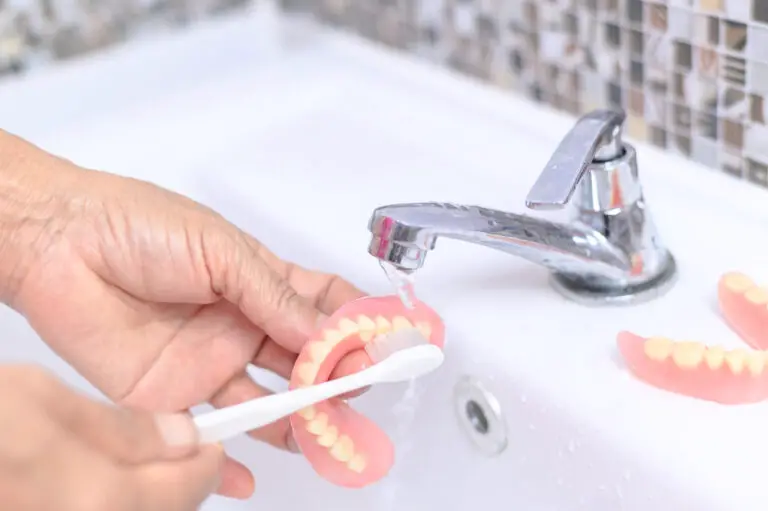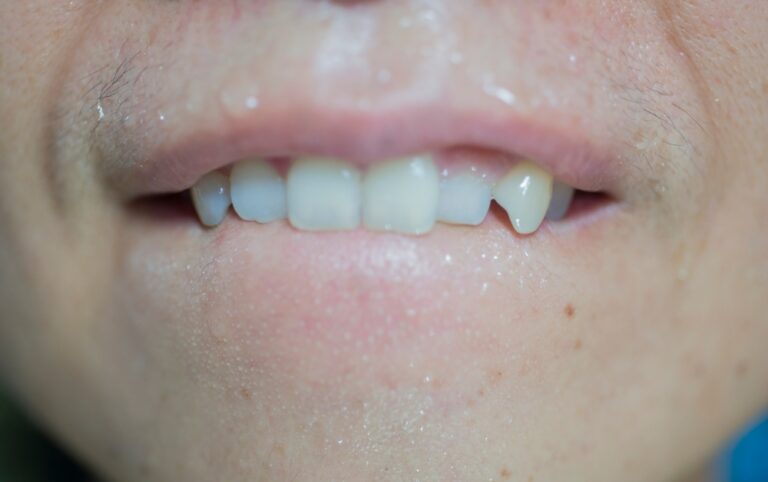Are you wondering if you can eat ramen noodles after a tooth extraction? It’s a common question that many people have after undergoing this dental procedure. While it’s possible to eat ramen after a tooth extraction, there are some important things to keep in mind to ensure a smooth and speedy recovery.
First and foremost, it’s important to take it slow and be mindful of your recovery time. Stick to milder and broth-based ramen and avoid anything too spicy or salty. If you ever experience pain or discomfort, stop immediately and consult with your dentist. Additionally, it’s best to avoid hot foods during the initial recovery period and anything overly sweet or acidic. By following these guidelines, you can enjoy a delicious bowl of ramen without compromising your recovery.
Understanding Tooth Extraction
If you’re wondering whether you can enjoy a bowl of ramen noodles after having a tooth extraction, it’s important to understand the procedure and how to care for your mouth afterward.
Why Tooth Extraction is Necessary
Tooth extraction is a common dental procedure that involves removing a tooth from its socket in the jawbone. This may be necessary for a variety of reasons, including:
- Severe tooth decay or damage
- Crowding or misalignment of teeth
- Infection or abscess
- Impacted wisdom teeth
Your dentist or oral surgeon will determine whether a tooth extraction is necessary and will discuss the procedure with you beforehand.
Post Extraction Care
After a tooth extraction, it’s important to take proper care of your mouth to promote healing and prevent complications. Here are some tips for post-extraction care:
- Bite down on a gauze pad placed over the extraction site for 30-45 minutes to help stop bleeding.
- Apply an ice pack to your cheek for 10-20 minutes to help reduce swelling.
- Avoid rinsing or spitting for 24 hours after the procedure to allow the blood clot to form properly.
- Eat soft foods and avoid hot, spicy, or crunchy foods that may irritate the extraction site.
- Brush and floss gently around the extraction site to keep it clean, but avoid the area itself.
- Take any prescribed pain medication as directed by your dentist or oral surgeon.
Following these tips can help ensure a smooth recovery and reduce the risk of complications. Remember to follow your dentist’s instructions and contact them if you have any concerns or questions.
The Ramen Noodle Debate
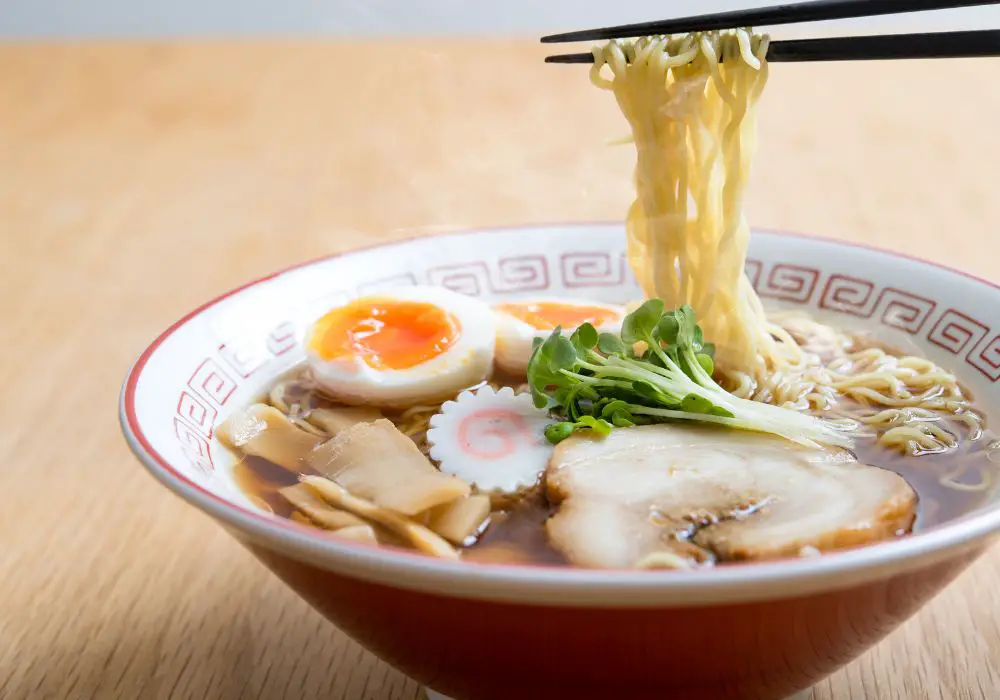
If you’re a fan of ramen noodles, you might be wondering if it’s safe to eat them after a tooth extraction. While some sources say it’s okay, others suggest waiting a few days before consuming any hot or spicy foods. Here’s what you need to know about the ramen noodle debate.
What are Ramen Noodles?
Ramen noodles are a type of Japanese noodle made from wheat flour, water, salt, and kansui, a type of alkaline mineral water. They are typically served in a broth made from meat or fish, along with various toppings such as sliced pork, green onions, and seaweed.
Nutritional Value of Ramen Noodles
Ramen noodles are high in carbohydrates and low in protein and fiber. They are also high in sodium, with one package of instant ramen containing up to 1,500 milligrams of sodium, which is more than half the recommended daily intake for adults. Additionally, instant ramen noodles often contain additives and preservatives that may not be beneficial for your health.
While ramen noodles may not be the healthiest food option, they can still be enjoyed in moderation as part of a balanced diet. However, after a tooth extraction, it’s important to be mindful of the temperature and texture of the food you consume.
Overall, it’s best to wait a few days after a tooth extraction before consuming any hot or spicy foods, including ramen noodles. When you do decide to eat ramen noodles, make sure they are not too hot and avoid slurping them, as this can create suction that may harm the extraction site. You can also opt for softer noodles, such as pasta or ramen noodles in a broth, to make them easier to eat.
Eating Ramen Noodles After Tooth Extraction
If you’re craving a bowl of ramen noodles after a tooth extraction, you might be wondering if it’s safe to eat them. The answer is not a straightforward one. It depends on the type of tooth extraction you had and the stage of your recovery. In this section, we will explore the possible risks and challenges of eating ramen noodles after tooth extraction and provide you with some tips for a safe and comfortable eating experience.
Possible Risks and Challenges
Eating ramen noodles after tooth extraction can be challenging and risky, especially during the first few days after the procedure. Here are some of the possible risks and challenges you may face:
- Pain: Chewing hard or crunchy foods like ramen noodles can cause pain and discomfort, especially if the extraction site is still sore.
- Infection: Ramen noodles are often served hot, and the heat can increase blood flow to the extraction site, causing bleeding and delaying the healing process. Moreover, if the noodles are not prepared hygienically, they can be a source of infection.
- Damage to the Extraction Site: Consuming hard or crunchy foods can dislodge the blood clot that forms in the extraction site, leading to a condition called dry socket. Dry socket can cause severe pain and delay the healing process.
Tips for Eating Ramen Noodles Post Extraction
If you’re determined to eat ramen noodles after tooth extraction, here are some tips to make it a safe and comfortable experience:
- Wait for at least 24-48 hours after the extraction before attempting to eat ramen noodles.
- Choose soft and easy-to-chew noodles like udon or soba instead of hard and crunchy ramen noodles.
- Cut the noodles into small pieces and chew them slowly and carefully to avoid damaging the extraction site.
- Avoid adding spicy or acidic condiments to your noodles as they can irritate the extraction site and delay healing.
- Rinse your mouth with warm salt water after eating to keep the extraction site clean and reduce the risk of infection.
In conclusion, eating ramen noodles after tooth extraction can be risky and challenging, but it’s not impossible. By following the tips mentioned above and being patient with your recovery, you can enjoy a bowl of ramen noodles without compromising your oral health.
Alternative Soft Foods to Consider
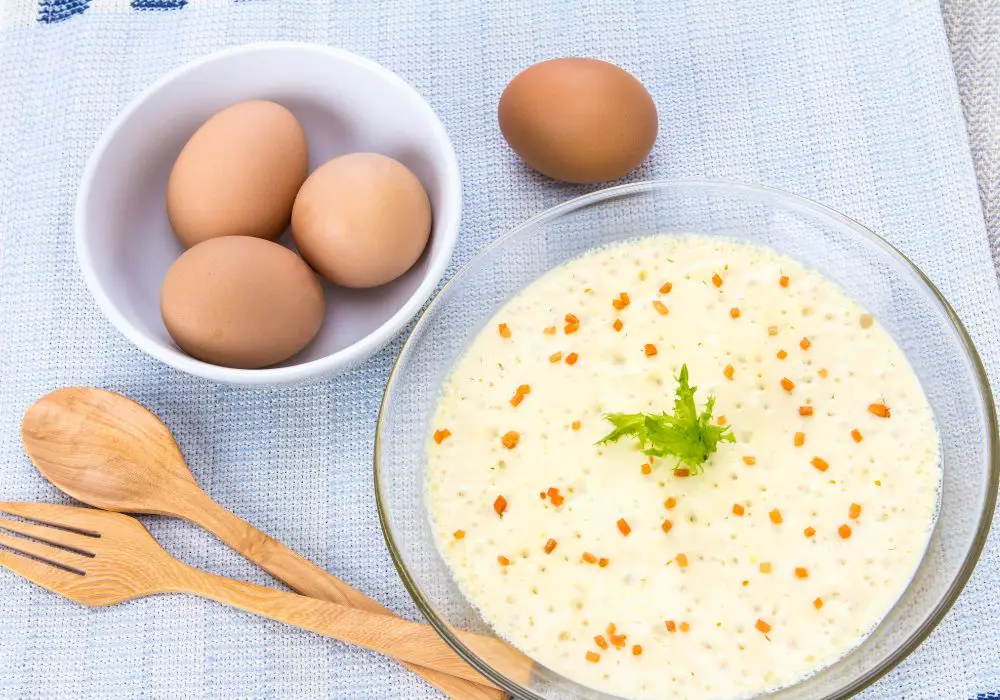
After a tooth extraction, it’s important to stick to a soft food diet to avoid irritating the extraction site and to promote healing. While ramen noodles can be a soft and comforting option, there are plenty of other foods to consider as well. Here are some alternative soft foods to try:
Soup Varieties
Soups are a great option for those looking for a warm and soothing meal. However, it’s important to choose the right type of soup to avoid any potential irritation. Here are some soup varieties to consider:
- Broth-based soups: chicken noodle, vegetable, or beef broth-based soups are great options. Just make sure to avoid any large chunks of meat or vegetables that could get stuck in the extraction site.
- Creamy soups: cream of mushroom, tomato, or broccoli soup can provide a comforting and filling meal. However, make sure to avoid any soups with spicy or acidic ingredients that could irritate the extraction site.
Smoothies and Milkshakes
If you’re looking for a cold and refreshing option, smoothies and milkshakes are a great choice. Here are some ideas to get you started:
- Fruit smoothies: blend together your favorite fruits with some yogurt or milk for a nutritious and filling meal.
- Protein shakes: mix together some protein powder, milk, and a banana for a protein-packed meal replacement.
- Milkshakes: indulge in a sweet treat with a classic vanilla or chocolate milkshake.
Mashed Foods
Mashed foods are a great option for those who want a more substantial meal. Here are some ideas to consider:
- Mashed potatoes: mash together some boiled potatoes with butter and milk for a comforting and filling meal.
- Avocado: mash up some avocado for a healthy and nutritious meal.
- Hummus: dip some soft pita bread or crackers into some creamy hummus for a satisfying snack.
Remember, it’s important to avoid any hard, crunchy, or acidic foods that could irritate the extraction site. Stick to a soft food diet for a few days after the extraction to promote healing and avoid any potential complications.
Frequently Asked Questions
What soft foods can I eat after tooth extraction?
After tooth extraction, it is important to stick to a soft food diet for the first few days to avoid any complications. Some soft foods that you can eat include:
- Mashed potatoes
- Yogurt
- Scrambled eggs
- Smoothies
- Applesauce
- Oatmeal
Can I eat pasta after tooth extraction?
Yes, you can eat pasta after tooth extraction, but it is important to choose soft noodles like macaroni or spaghetti with a pureed sauce. Avoid any crunchy or hard pasta that may cause discomfort.
Is Ramen considered a soft food?
Ramen noodles can be considered a soft food, but it is important to follow a few guidelines to ensure a safe and comfortable recovery. Choose a broth-based ramen with soft noodles and avoid any crunchy toppings or hard meat.
When can I eat noodles after oral surgery?
It is generally recommended to wait at least 24 hours before eating any solid foods after oral surgery. After that, you can slowly introduce soft noodles like pasta or ramen into your diet.
Can I eat mac and cheese after wisdom teeth removal?
Yes, you can eat mac and cheese after wisdom teeth removal, but make sure it is soft and not too hot. Avoid any crunchy or hard toppings that may cause discomfort.
Can I slurp noodles after wisdom teeth removal?
Slurping noodles after wisdom teeth removal may cause discomfort or dislodge the blood clot, which can lead to complications like dry socket. It is best to eat noodles slowly and carefully, avoiding any hard or crunchy toppings.

